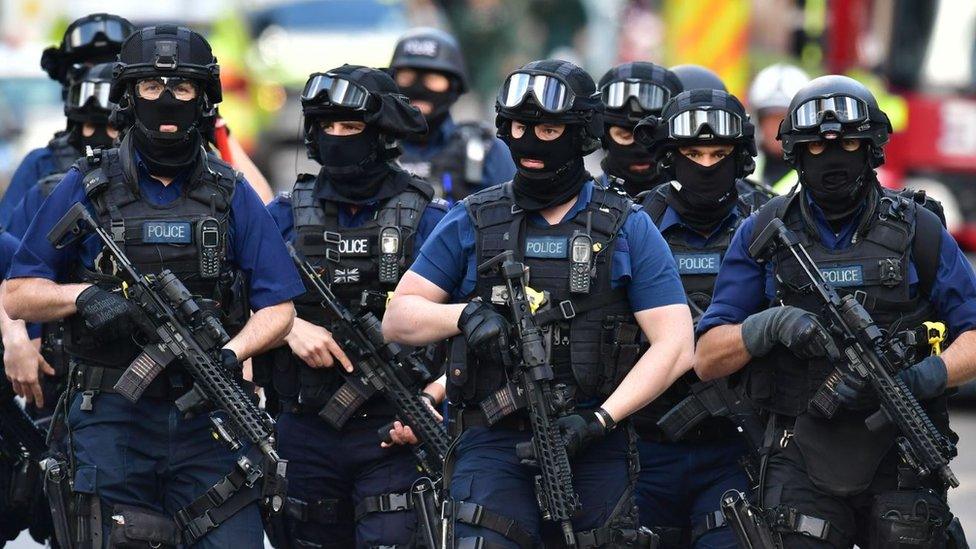Terror attacks: Corbyn opposes shoot-to-kill, Cairns claims
- Published
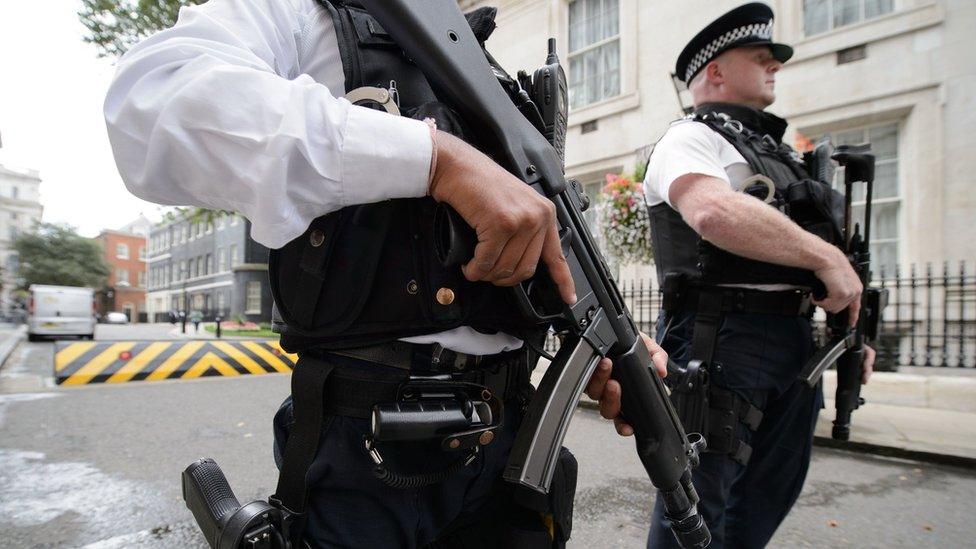
Labour denies that Jeremy Corbyn opposes a shoot-to-kill policy
Welsh Secretary Alun Cairns has sparked a row over whether Labour leader Jeremy Corbyn opposed a shoot-to-kill policy.
Mr Cairns said armed police potentially saved many lives by shooting dead three men at the scene of Saturday's terrorist attacks in London.
The Tory minister said Mr Corbyn had previously opposed such a policy.
However, Labour's Stephen Kinnock immediately rebuked the comment, saying Mr Corbyn said on Sunday police should use "whatever force is necessary".
Shoot-to-kill "used sensibly" saves lives, Alun Cairns claims
During a debate on BBC Radio 5 live from Gower on Monday, Mr Cairns pointed out that Mr Corbyn had previously "opposed the shoot-to-kill policy".
"On Saturday night that shoot-to-kill policy saved tens, if not hundreds of people's lives," he said.
Mr Kinnock, when asked in the radio debate if Mr Corbyn supported shoot-to-kill now, said: "Yes."
"He made it clear in his speech yesterday that he would authorise the police and security services to take all necessary measures," Mr Kinnock said.
Carwyn Jones: "Absolutely crucial we do not let these people win"
Welsh Labour leader Carwyn Jones was critical of the prime minister's claims that there was too much tolerance of extremism.
Campaigning on Anglesey on Monday, he said that after six years of being home secretary Theresa May was responsible as it was "on her watch".
He added: "I don't think it is wise to rush into a response in the aftermath of a horrible attack - we have to be clever than that to look for a response which is far more effective."
Terrorists want us to turn on each other, Leanne Wood said
Meanwhile, Plaid Cymru leader Leanne Wood has called on politicians to be careful of the language they use when referring to minority communities in the aftermath of the attacks in Manchester and London.
"What the terrorists want is for us to be divided as communities," she said, also while campaigning on Anglesey.
"They want us to turn on each other and, as politicians, we have to be very, very careful to make sure that we talk about this in a way that doesn't help people to turn upon their neighbour."
Neil Hamilton urged Muslims to "help us defeat these cancers in our midst"
Opposition parties in Wales have also called for UK government cuts to police budgets to be reversed to boost the fight against terrorism during a campaign debate on BBC Radio Wales.
Labour's Stephen Doughty said community officers were "often the first line in providing community intelligence which is so crucial to the security services" which could potentially prevent terrorist attacks.
Plaid Cymru assembly member Steffan Lewis said such officers could build "a level of trust" and could spot people "who may be susceptible to radicalisation".
UKIP's leader in the assembly, Neil Hamilton, said his party would reverse police cuts and give them more powers to stop and search suspects.
Lib Dem Baroness Randerson said Theresa May had been in charge of policing for seven years
Liberal Democrat peer Baroness Randerson said her party would also reverse cuts and warned of the risk of losing international co-operation to combat terrorism after Brexit.
Conservative candidate David Davies insisted that anti-terrorism and intelligence budgets had been protected while the UK government tackled a budget deficit "inherited from Labour".
He said there was also a need to have "some embarrassing and difficult conversations" with the Muslim community to root out extremists.
A vigil was held, following the London attack, in Swansea's Castle Gardens at 18:00 BST on Monday evening.
- Published5 June 2017
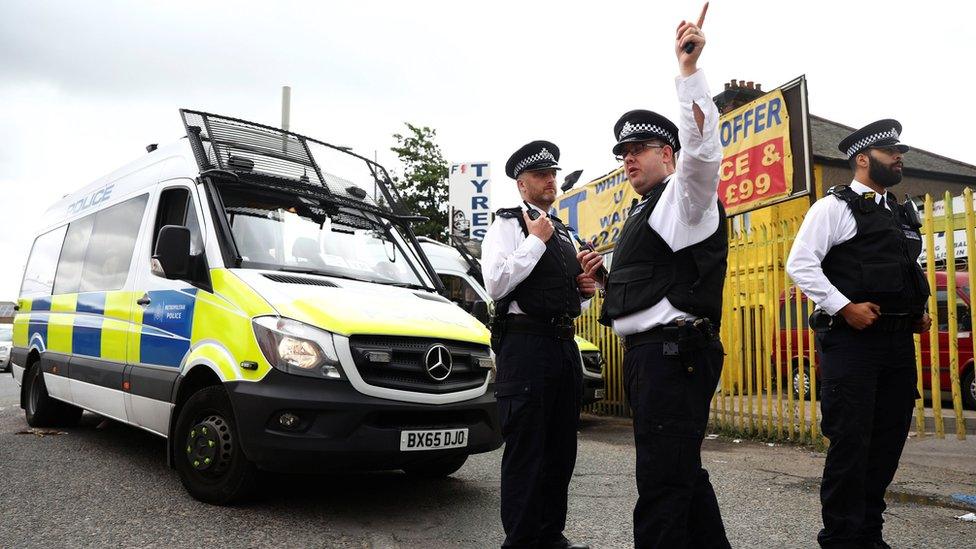
- Published5 June 2017
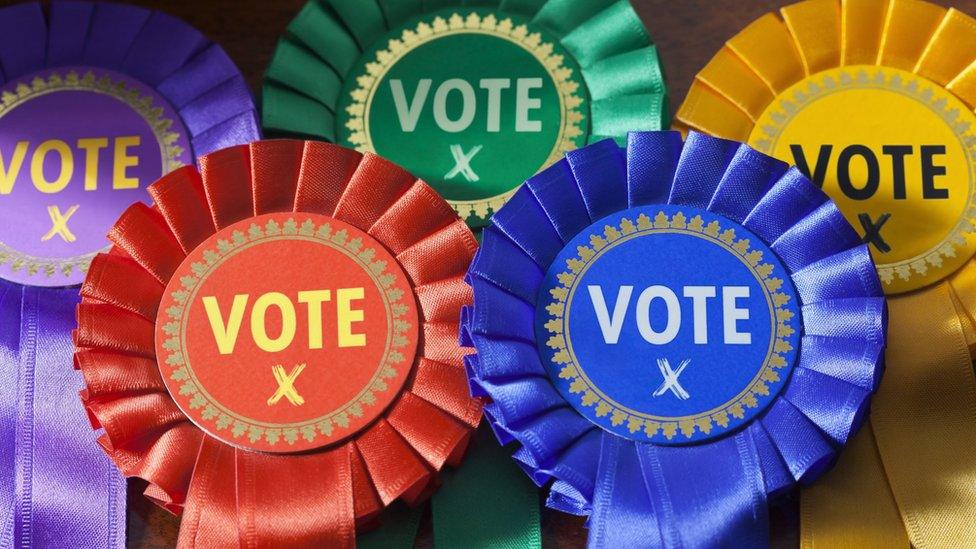
- Published4 June 2017
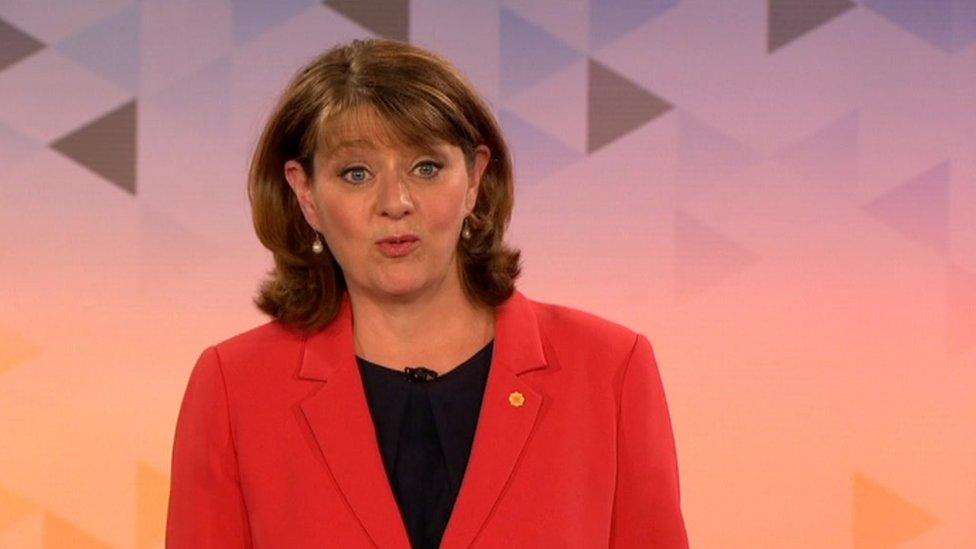
- Published4 June 2017
